The Peasants of Ottobeuren, 1487–1726
A Rural Society in Early Modern Europe
Part of Past and Present Publications
- Author: Govind P. Sreenivasan, Brandeis University, Massachusetts
- Date Published: November 2007
- availability: Available
- format: Paperback
- isbn: 9780521044585
Paperback
Other available formats:
Hardback, eBook
Looking for an inspection copy?
This title is not currently available for inspection. However, if you are interested in the title for your course we can consider offering an inspection copy. To register your interest please contact [email protected] providing details of the course you are teaching.
-
The Peasants of Ottobeuren offers an interesting perspective on one of the enduring problems of early modern European history: the possibilities for economic growth and social change in rural society. Based on the voluminous records of the Swabian Benedictine monastery of Ottobeuren, this study underscores the limitations of the traditional narrative of a sixteenth-century boom which foundered on the productive rigidities of the peasant economy and then degenerated into social crisis in the seventeenth century. Population growth did strain resources at Ottobeuren, but the peasantry continued to produce substantial agricultural surplus. More importantly, peasants reacted to demographic pressure by deepening their involvement in land and credit markets, and more widely and aggressively marketing the fruits of their labour. Marriage and inheritance underwent a similar process of commercialization which made heavy demands on the peasantry, but which maintained a degree of social stability through the devastations of war, plague and famine.
Read more- A detailed reconstruction of the actual workings of the German peasant economy
- Provides answers to the social impact of the Thirty Years War, including the economics and politics of reconstruction and post-war immigration
- A rare investigation into the early modern European economy which provides hard data for rural society during the 'crisis of the seventeenth century'
Reviews & endorsements
'Govind Sreenivasan's excellent new book is a major contribution to both the literature on peasants in European society and to Early Modern German History in general.' Sehepunkte
See more reviews'… achieves the rare feat of spanning the period from the late fifteenth to the early eighteenth century. The book is likely to be influential.' The Agricultural History Review
'… enormously rich and detailed … an incisive and compelling analysis of the rapidly increasing commercialization of the rural economy in the late sixteenth and early seventeenth centuries.' German History
Customer reviews
Not yet reviewed
Be the first to review
Review was not posted due to profanity
×Product details
- Date Published: November 2007
- format: Paperback
- isbn: 9780521044585
- length: 412 pages
- dimensions: 228 x 152 x 25 mm
- weight: 0.619kg
- contains: 2 maps
- availability: Available
Table of Contents
List of figures
List of maps
List of tables
Acknowledgements
Note on weights, measures and currencies
Introduction
1. Right and might (c.1480–c.1560)
2. The discrete society (c.1480–c.1560)
3. A crisis of numbers? (c.1560–c.1630)
4. Integrity and the market (c.1560–c.1630)
5. Living on borrowed time (c.1560–c.1630)
6. To empty and to refill (c.1630–c.1720)
Conclusion
Bibliography
Index of places
General index.
Sorry, this resource is locked
Please register or sign in to request access. If you are having problems accessing these resources please email [email protected]
Register Sign in» Proceed
You are now leaving the Cambridge University Press website. Your eBook purchase and download will be completed by our partner www.ebooks.com. Please see the permission section of the www.ebooks.com catalogue page for details of the print & copy limits on our eBooks.
Continue ×Are you sure you want to delete your account?
This cannot be undone.
Thank you for your feedback which will help us improve our service.
If you requested a response, we will make sure to get back to you shortly.
×
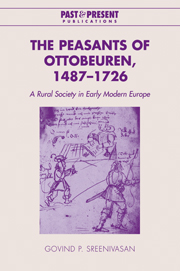
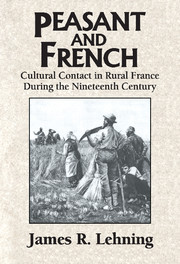

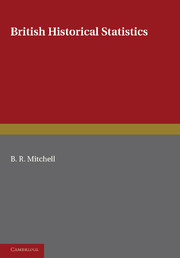


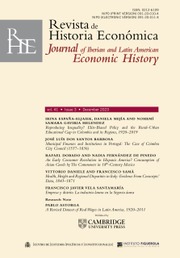


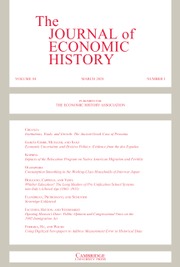

.jpg)

.jpg)